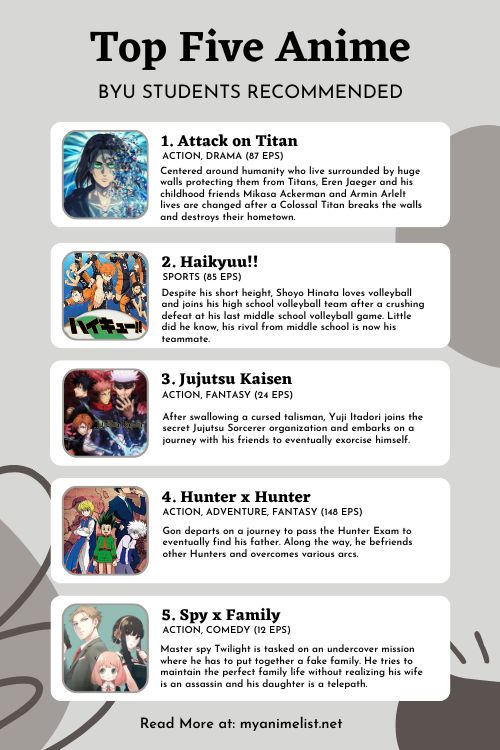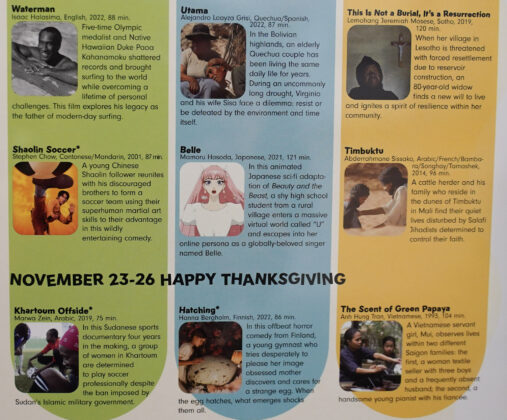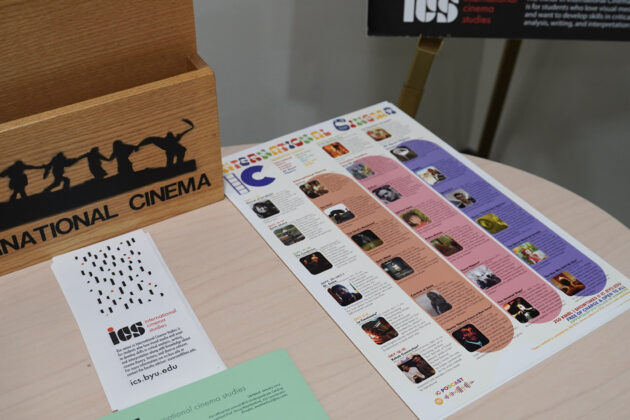Japanese 2D animation, commonly known as “anime,” has become a medium through which BYU students have been able to diversify their cultural knowledge.
According to BYU Japanese professor Shin Tsuchiya, anime creates cultural connections with those around him.
Tsuchiya said he has heard experts say that Japan is losing their economic power, but anime is something that cannot be replicated. He also said streaming services like Netflix and Hulu have allowed anime to become more accessible and that anime can teach good morals.
According to Tsuchiya, anime also has soundtracks and music that is very influential. “We want to push students to be able to understand Japanese, and anime provides — I mean sometimes very exaggerated — but good input for students to practice,” Tsuchiya said.
Tsuchiya said anime can be a good reference for students who want to practice speaking in the polite form and using correct pronunciations. According to Tsuchiya, the mother in “Spy x Family” is a great example of a character who uses the polite language in Japanese. He said if students can process some of the tones and pay attention to how some characters speak, as opposed to just relying on subtitles, it can be very beneficial.
Anime generally consists of 12 episodes that last about 20 minutes and range from one to 20 seasons.
Andrew Cohen, a returned missionary who served in Tokyo, said anime has a story progression and character development that doesn’t exist as much in American shows. He said while American shows are generally more drawn out, anime usually have a more focused, faster progression that results in a more concise thesis.
“American shows feel more diluted in terms of content and progression,” Cohen said. “And so when I watch anime, it’s because it’s like a whole story, a whole message, a whole meaning to a story that I can consume.”

Cohen said there is still a stigma surrounding watching anime. He said the American perception of anime is mostly focused on the mainstream, longer action shows like “Naruto” or “One Piece.”
Because Cohen was at first only exposed to the mainstream ideal of anime, he said he thought anime was “cringe” because of the characters’ exaggerated emotions and excessive reactions.
However, Cohen said he has since discovered that there is a variety of genres and types of anime.
“Animes like Attack on Titan have gained popularity so the social stigma around anime has been changing as a result,” Cohen said.
BYU finance major Hyrum Chen said anime appeals to him because of its deeper themes and analysis of human nature.
According to Chen, anime is 2D and already unrealistic to begin with. He said animators can develop characters and stories that expand the vastness of the world.
“Most people make fun of anime and I think that’s due to a close-mindedness of majority of people in America,” Chen said. He said many people’s perception and misunderstanding of anime stems from the off-putting stigma surrounding certain anime fans.
Chen said people should not make judgements based on perceived stereotypes they hear. “If you come at things with a closed mind, you’re not going to be exposed to new cultures,” he said.









